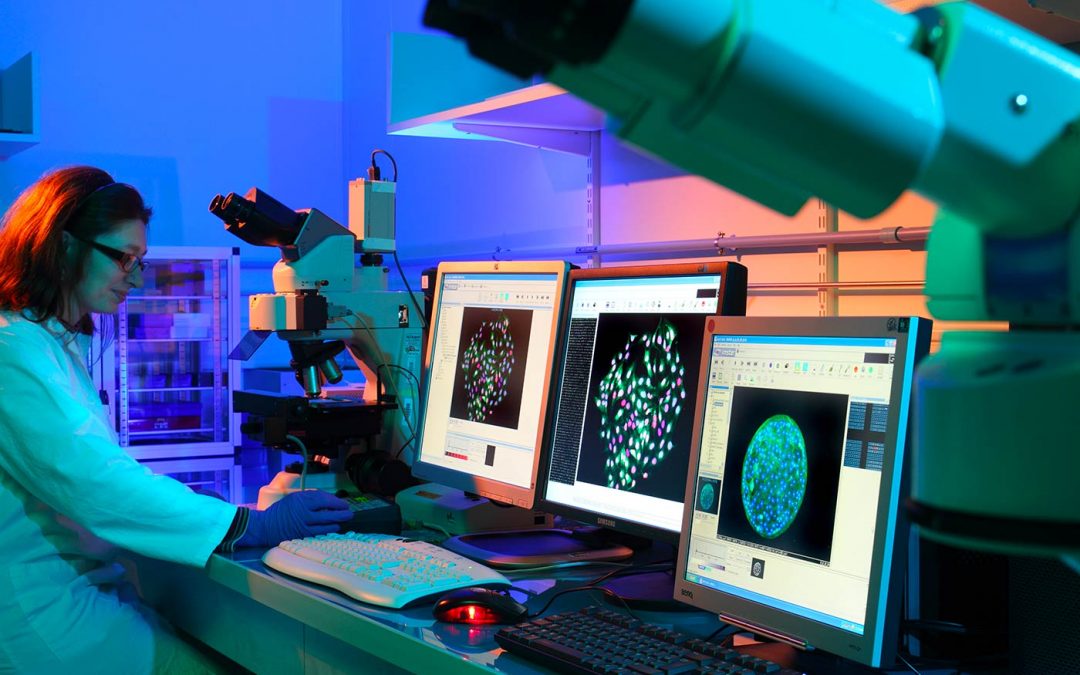Context of this Call
In the framework of the recently funded EUR “Grenoble Graduate School in Chemistry, Biology and Health” (CBH-EUR-GS), GRAL program funds PhD scholarships (salary for a PhD student and 10 k€ bench fees per year) in the area of integrated structural and cellular biology.
1. Scientific scope of GRAL
Integrating structural and dynamic information at various scales is essential for understanding complex biological processes. GRAL emphasizes the dynamics of biological systems, including for example the assembly of protein complexes, their integration into functional operating systems, the kinetics of interactions between host and pathogens and the self-organization of cells into multicellular architectures such as tissues or organoids. Overall, GRAL is divided into two main programs: 1) “Molecular Machines and Dynamics” and 2) “Self organization of Biological Systems”.
- Molecular Machines, Dynamics and assemblies:
The objective of this program is the comprehensive analysis of molecular machines (protein, DNA, RNA etc.) focused, but not limited to, the following processes: (i) microbial host-pathogen interactions, (ii) immunity and infection, (iii) membrane transport and signalling, or (iv) epigenetics, chromatin and cancer. The development of methods used to study these complex machineries is also in the scope of this call. These include among others: NMR, X-ray crystallography, atomic force microscopy, single molecule fluorescence technologies, neutron and X-ray scattering, optical and electron microscopy, native mass spectrometry techniques and/or molecular dynamics simulations.
2.Self-organization of Biological systems:
A central property of living systems is their capacity to self-organize. The objective of this program is the study of the dynamic properties of self-organization during morphogenesis and signalling in response to environmental cues in different organisms such as bacteria, yeast, microalgae, flies, human cells or plants. The programme includes and is not restricted to the following: (i) multicellular assemblies (organoids, tissues etc.), (ii) biogenesis, function and dynamics of subcellular architectures (membranes, organelles etc.).
To reach these objectives and bridge the scales from molecules to tissues to organisms, GRAL launches its second call for proposals to fund PhD scholarships.
2. Terms of the call:
This call is open to the GRAL community and must fit the scientific scopes of GRAL described above. Projects are encouraged to have a strong collaborative character and foster strong interactions between GRAL partner labs (CBM, PCV, BCI, BGE, IBS, EMBL) and/or with EUR partner labs, but only GRAL partners can receive funding. Applications from young scientists are also encouraged. Proposals for joint funding of PhD salaries by other organizations (half grant) will also be considered. The prime criteria for selection will be the scientific excellence and coherence of the proposal and the experience and track record of the project coordinator.
3. Evaluation process:
Project proposals prepared using the attached template should be submitted by November 15th 2019.
Projects should be sent in pdf format to Manel.boumegoura@cea.fr.
The Science Advisory Board (SAB) of GRAL will pre-select up to 20 proposals, which will be evaluated by external reviewers.
Selected projects will be reviewed by two external experts. The final ranking of the selected project will be validated by the SAB and the board of directors. The project coordinators will be notified of the results of the call in January 2020 and will then be given two months to select a potential candidate.
These selected PhD students will then be auditioned during the first week of April 2020 by an independent panel. If the PhD candidate fails to convince the panel, the project coordinator will be offered a new opportunity to present a candidate in a second audition, which will most likely take place in September 2020. Only projects with approved PhD candidates will be financed.
PhD projects selected by GRAL cannot receive substantial financing from other funding agencies (ANR, EUR, IDEX, ERC…). A list of ongoing grants should be included in the application file.
Please note
- Researchers receiving ERC funding may not submit a project during the first year of their funding.
- The submitted project should not overlap with the ERC project.
4.Budget information
GRAL will support 6 PhD scholarships:
Payroll: 1768€ Gross salary per month
Operating costs: 10k€ per year
5. Contact
For any further information, please contact: anne-mathilde.thierry@ibs.fr
Tel: 33 (4) 57 42 87 92

